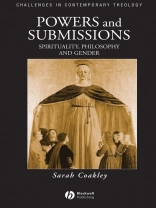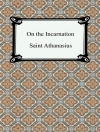In this book Sarah Coakley confronts a central paradox of
theological feminism – what she terms ‘the paradox of power and
vulnerability’.
* * Confronts a central paradox of theological feminism –
what Coakley terms ‘paradox of power and vulnerability’.
* Explores this issue through the perspective of spiritual
practice, philosophical enquiry and doctrinal analysis.
* Draws together an essential collection of Sarah Coakley’s work
in this field.
* Offers an original perspective into contemporary feminist
theology.
Tabella dei contenuti
Acknowledgements.
Preface.
Prologue: Powers and Submissions.
Part I: The Comtemplative Matrix.
1. Kenosis and Subversion: On the Repression of ‘Vulnerability’
in Christian Feminist Writing.
2. Traditions of Spiritual Guidance: Dom John Chapman OSB
(1865-1933) on the Meaning of ‘Contemplation’.
3. Creaturehood Before God: Male and Female.
Part II: Philosophical Interlocutions.
4. Visions of the Self in Late Medieval Christianity: Some
Cross-Disciplinary Reflections.
5. Gender and Knowledge in Modern Western Philosophy: The ‘Man
of Reason’ and the ‘Feminine Other’ in Enlightenment and Romantic
Thought.
6. Analytic Philosophy of Religion in Feminist Perspective: Some
Questions.
Part III: Doctrinal Implications.
7. ‘Persons’ in the ‘Social’ Doctrine of the Trinity: Current
Analytic Discussion and ‘Cappadocian’ Theology.
8. The Resurrection and the ‘Spiritual Senses’: On Wittgenstein,
Epistemology and the Risen Christ.
9. The Eschatological Body: Gender, Transformation and God.
Index.
Circa l’autore
Sarah Coakley is Edward Mallinckrodt, Jr., Professor of Divinity at Harvard University. She previously taught at Oriel College, Oxford, and at the Department of Religious Studies, Lancaster University. She is the author of Christ Without Absolutes (1988); the editor (with David A. Pailin) of The Making and Remaking of Christian Doctrine (1991), and editor of Religion and the Body (1997). She is currently working on a systematic theology, the first volume of which will appear as God, Sexuality and the Self: An Essay ‘On the Trinity’ (forthcoming).







![Copertina di Brian Schrag & Julisa Rowe: Community Arts for God's Purposes [Chinese] 貼近神心意的社群藝術 Copertina di Brian Schrag & Julisa Rowe: Community Arts for God's Purposes [Chinese] 貼近神心意的社群藝術](https://static.worldofdigitals.com/thumb_webp/740/9781645083740.webp)




